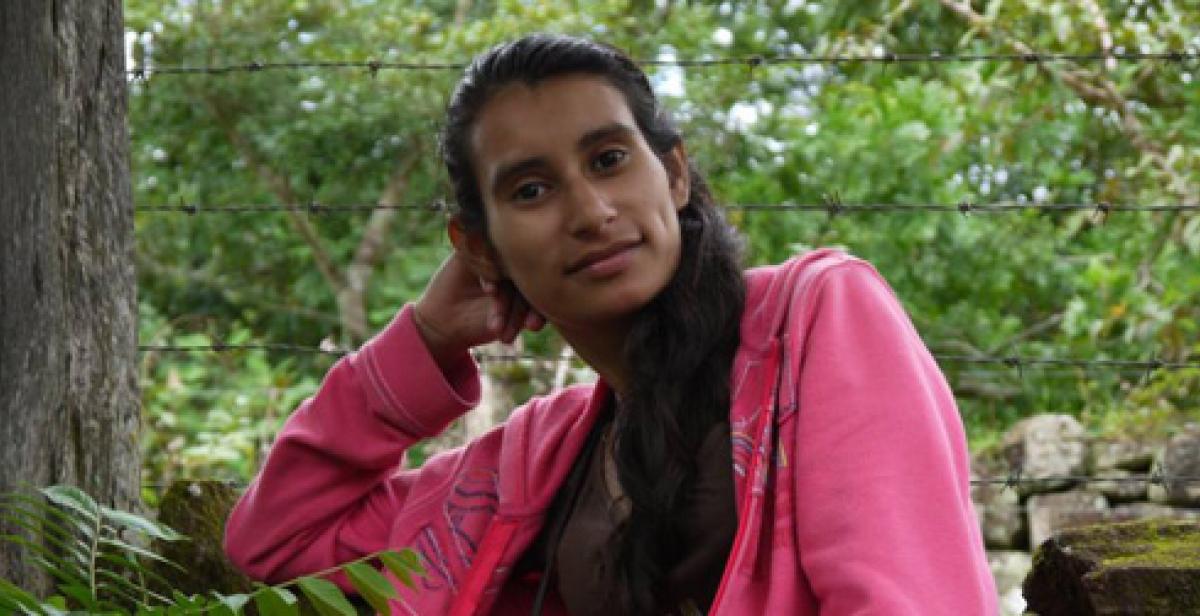We’re into the final two weeks of our placement here and last Friday we finally got to do a homestay with our national counterparts in one of the communities. Spending almost every day of the week with the Honduran volunteers, we’ve certainly got to know them all very well. Yet it’s only after spending a night in the communities where they’ve lived their whole lives that you can really get a feel of what life is like for them. Timing it nicely with our ascent of the Puca mountain the next morning, four of us Brits packed our overnight bags and headed out of Gracias for our first night in a proper Honduran household.
Sunset here is at around 6pm every evening and with very few streetlights around these rural communities, complete darkness sets in pretty suddenly. With 5am starts the next morning for many of the campesinos it’s a pretty early bedtime for most. Nevertheless Dan and I, the two Brits staying in La Azomada, had time to venture up to where many of the men of the community socialise and have a quick couple of games on one of the pool tables there. After a short while it’s safe to say that British pub rules were met with bemusement rather than enthusiasm and we soon gave up encouraging the locals to join in (‘What do you mean you lose if you pot the black!?’). We headed back to the house and were tucked into our makeshift beds on the floor by 8.30pm. The total darkness definitely helps if you share the philosophy adopted by Dan and me that night: ‘if you can’t see the insects, they’re not there’.
Meanwhile Antoinette and Ellen, the two other Brits doing homestays, were staying with Norma in the much smaller community of Catatao. But what Catatao lacked in bustling nightlife it certainly made up for in hospitality. Antoinette and Ellen were really moved by the warmth of Norma’s parents and grandparents and spent most of the evening being fed and fussed over and chatting about life in Britain. (Rather unexpectedly, the existence of the Channel Tunnel – along with Antoinette’s hair – was apparently one of the things they were most impressed with). This mini cultural exchange is one of the great benefits of ICS Progressio and so I decided to ask Norma a few questions about her life in Honduras and why she chose to take part in the project.
Norma is 21 and has lived together with her four sisters and parents in the same house since she was born. Her grandparents live close by and for Christmas in a month’s time they plan to invite the whole village round as usual. This warm community spirit and the close relationship she has with her four sisters are two of the main reasons she doesn’t see herself leaving Catatao any time soon. Her experience on the programme, as with the UK volunteers, has been wholly positive but in a different way. The experience she has gained, planting coffee and making organic compost, for example, are practical skills she’ll put into practice on her father’s farm as soon as the programme is over.
Although Norma enjoyed school and was fortunate enough to be in education to the age of 16, she thinks university is unlikely for her. As much as she’d like to go in the future, she tells me the only viable option for her would be to work Monday to Friday to afford the fees, leaving only the weekend to study. This doesn’t worry her too much as going to university is not the norm for people her age. Besides, she tells me, she much prefers the country way of life and would only visit cities like San Pedro Sula where she has relatives to stay with. Norma’s unsure about her future (as I’m sure most 21 year-olds are!), but leaving Honduras isn’t a consideration for her. The violent crime Honduras is often renowned for is something she has only ever seen in cities, so for now she feels perfectly safe and happy with her family in Catatao.
Written by ICS volunteer Jolyon Hedges



